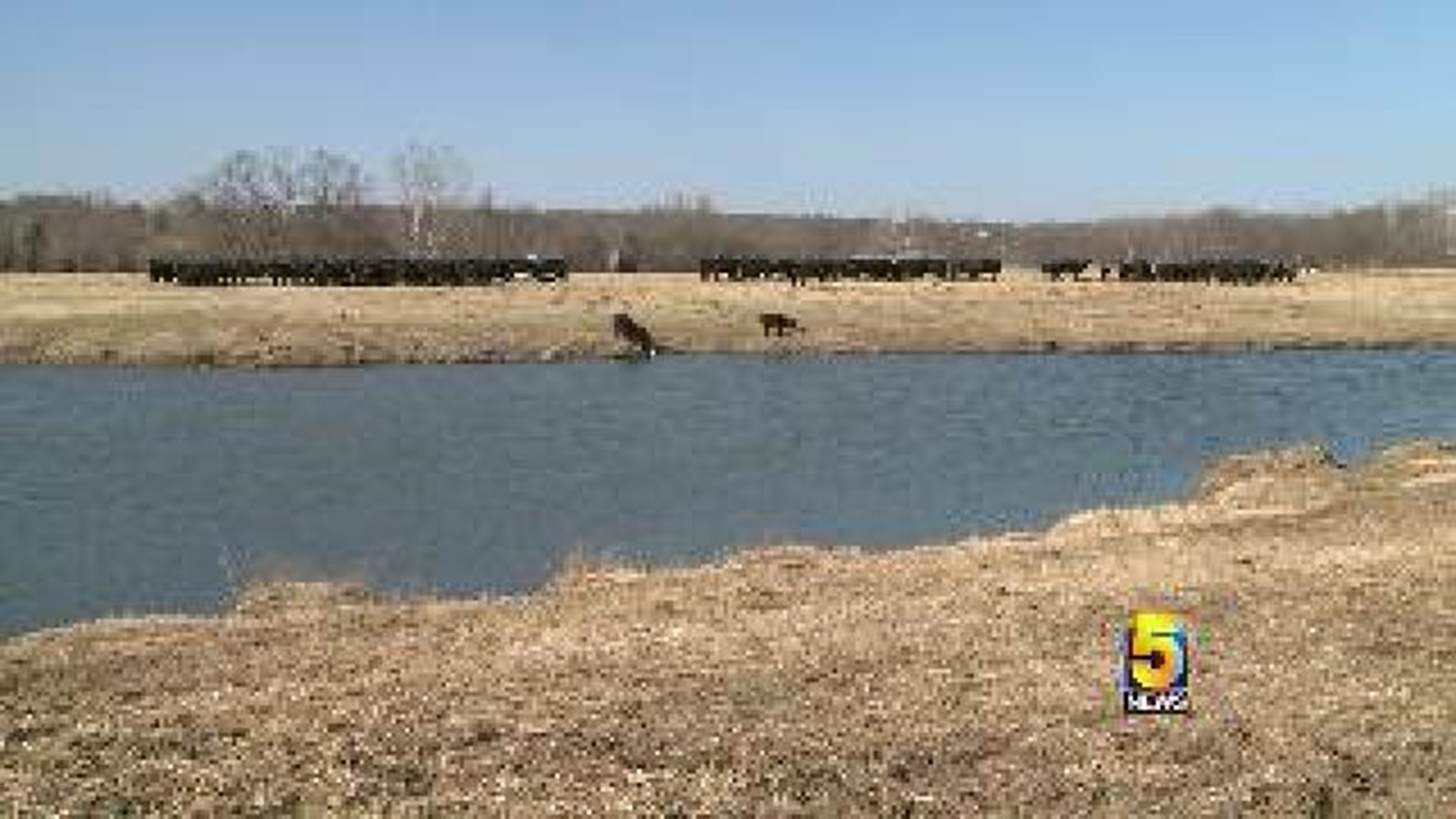Cattle numbers are down across the nation, but not in the Natural State.
Arkansas ranchers are rebuilding their herds after the state’s cattle industry suffered $128 million in damage during the 2012 drought.
Greenwood rancher Trey Burgess said this is the smallest herd he’s had in recent years, but they’re rebuilding, and with the high price of cattle right now, it’s a seller’s market.
“They’re up quite a bit,” Burgess said. “The cattle market is up.”
Burgess was forced to part with some of his cows during the difficult drought of 2012. He said it’s hard to predict how the upcoming summer will impact his business.
“You try to prepare, but there’s not a whole lot you can do other than having extra hay maybe on hand,” Burgess said.
Sebastian County agent Jesse Bocksnick says the National Cattle Inventory is the lowest it’s been since the early 1950`s, but that’s not the case in Arkansas.
“Nationally, the cow inventory is going down, and statewide here in Arkansas, the cattle inventory is going up,” Burgess said.
According to Bocksnick, the local land and weather helped in recovering from the drought quicker than other parts of the country. He said local ranchers are also spending less this year.
“Corn is about half of what it was last year, so our input costs are lower so that`s actually going to allow some of our producers to go ahead and hang on to some of the cows instead of liquidating their herds,” Bocksnick said.
Burgess said rising and falling prices are just part of the agriculture business.
“The cattle market is an up and down deal so if you’re going to be in it, you’re going to have to just stay in it and ride it out,” Burgess said.
Bocksnick said despite the recent burn bans, he’s optimistic about the upcoming spring and summer seasons.
Federal statistics show Arkansas is home to about 2% of the nation’s cattle.

